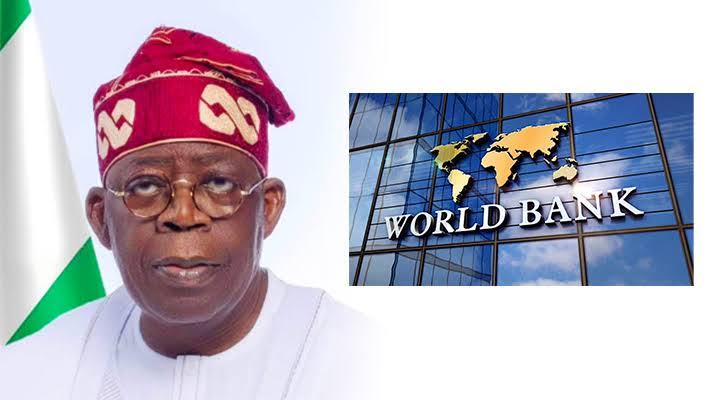The Federal Government, led by President Bola Tinubu, has borrowed a staggering $6.45 billion from the World Bank within a mere 16 months. This figure has risen following the recent approval of three additional loans totaling $1.57 billion, aimed at various developmental projects across Nigeria.
Increasing Debt Profile Raises Concerns
The World Bank has approved a total of 36 loan requests to Nigeria, amounting to a significant $24.088 billion over the past five years. While these funds are intended to finance critical development initiatives, there are growing concerns about the sustainability of Nigeria’s escalating debt profile and its long-term economic implications.
Key Projects Funded by World Bank Loans
Among the projects funded under Tinubu’s administration are:
• $750 million for power sector improvements
• $500 million for women empowerment initiatives
• $700 million for girls’ education
• $750 million for renewable energy projects
• $1.5 billion for economic stabilization reforms
• $750 million for resource mobilization efforts
Nigerians have expressed increasing frustration regarding the government’s borrowing practices, particularly in light of prolonged infrastructure decay and rising unemployment.
Historical Context of World Bank Loans to Nigeria
An analysis of World Bank documents reveals that Nigeria has received consistent credit approvals since 2020. In that year alone, 15 loan requests worth $6.36 billion were approved, including significant projects like:
• $510 million for the Nigeria Rural Access and Agricultural Marketing Project
• $430 million for the Nigeria Digital Identification for Development project
• $750 million for COVID-19 response initiatives
In subsequent years, loan requests fluctuated, with six projects worth $3.2 billion approved in 2021 and $1.26 billion in 2022. Notably, 2023 saw an increase to $2.7 billion for four projects.
Future Projections and Economic Implications
As of 2024, the World Bank has already approved $3.82 billion for five projects, with expectations of further credit facilities before the year’s end. The ongoing support from the World Bank is strategically focused on critical sectors such as economic reforms, resource mobilization, and renewable energy expansion.
Recent Approvals
On June 13, 2024, the World Bank announced two major loan projects aimed at enhancing Nigeria’s economic stability and supporting vulnerable populations. The combined package of $2.25 billion includes:
• $1.5 billion for the Nigeria Reforms for Economic Stabilization
• $750 million for the Nigeria Accelerating Resource Mobilization Reforms Program
These initiatives are designed to strengthen human capital and improve resilience against climate change impacts, such as floods and droughts.
Growing Debt Servicing Burden
As of March 31, 2024, Nigeria owes the World Bank a total of $15.59 billion. Debt servicing costs have surged to N6.04 trillion in the first half of 2024, marking a 68.8% increase from the previous year. This rising financial burden underscores the challenges faced by the government as debt repayments consume an ever-growing portion of its resources.
The ongoing borrowing spree raises critical questions about Nigeria’s financial future and the effectiveness of these loans in fostering sustainable development. As the government navigates these challenges, the focus remains on ensuring that borrowed funds translate into tangible improvements for the Nigerian populace.


